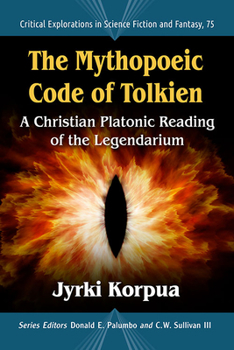The Mythopoeic Code of Tolkien: A Christian Platonic Reading of the Legendarium
(Book #75 in the Critical Explorations in Science Fiction and Fantasy Series)
J. R. R. Tolkien is arguably the most influential fantasy writer of all time--his world building and epic mythology have changed Western audiences' imaginations and the entire fantasy genre. This book is the first wide-ranging Christian Platonic reading on Tolkien's fiction. This analysis, written for scholars and general Tolkien enthusiasts alike, discusses how his fiction is constructed on levels of language, myth and textuality that have a background in the Greek philosopher Plato's texts and early Christian philosophy influenced by Plato. It discusses the concepts of ideal and real, creation and existence, and fall and struggle as central elements of Tolkien's fiction, focusing on The Hobbit, The Lord of the Rings, The Silmarillion and The History of Middle-earth. Reading Tolkien's fiction as a depiction of ideal and real, from the vision of creation to the process of realization, illuminates a part of Tolkien's aesthetics and mythology that previous studies have overlooked.





